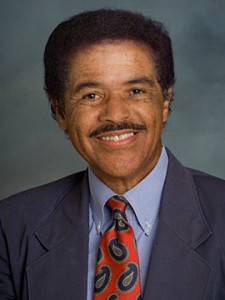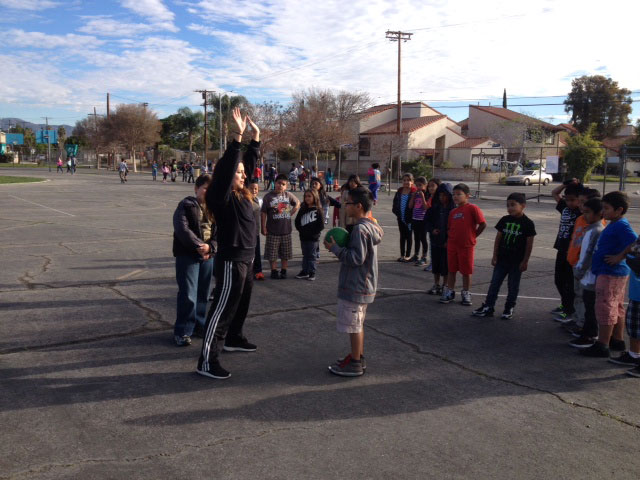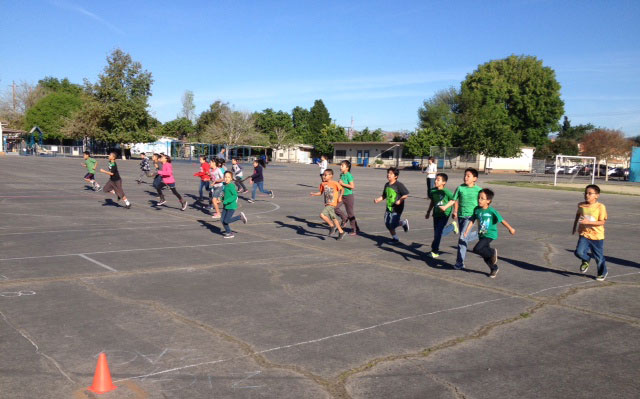![]()
![Graduate students in CSUN’s Marriage and Family Therapy master’s program review case file notes in the Mitchell Family Counseling Clinic's play therapy room. Photo by Nestor Garcia.]()
Graduate students in CSUN’s Marriage and Family Therapy master’s program review case file notes in the Mitchell Family Counseling Clinic’s play therapy room. Photo by Nestor Garcia.
A woman perches on a couch and speaks quietly with a therapist behind closed doors. In another room, a married couple meets with a counselor. Across the hall, a boisterous pack of children fills the play therapy room, a cheerful space adorned with a rainbow mural and filled with toys, stuffed animals, a play kitchen and an art easel. It’s another busy evening at the Mitchell Family Counseling Clinic.
The program provides a mental health clinic for California State University, Northridge and the local community. Operated by the Department of Educational Psychology and Counseling in the Michael D. Eisner College of Education, the clinic offers vital, low-cost services — much less expensive than private counseling — to individuals, families and groups, as well as art and play therapy for children and teens.
Graduate students in CSUN’s Marriage and Family Therapy (MFT) master’s program provide all of the clinic’s counseling services, with supervision and training by faculty members.
“The purpose of this program is to provide quality training to second-year graduate students in the MFT program,” said Joyce Medley ’79 (Psychology), M.S. ’86 (MFT), interim clinical director. “We teach broad-based clinical practice. Our goal is to give them the skills they’ll need to provide service safely and ethically.”
The CSUN students provide about 2,000 cumulative hours of counseling per year through the clinic. Half of those hours take place off campus, with counseling provided to schoolchildren at Magnolia Science Academy in Reseda and other area schools — serving children from age 4 through high school.
It was this partnership with local schools that gave the clinic its start in 1994, as CSUN provided counseling to children coping with post-traumatic stress disorder after the Northridge earthquake.
The clinic has grown steadily over the years from portable buildings in a university parking lot to its current home in the Education Administration building on Etiwanda Avenue, part of the Teaching, Learning & Counseling Consortium space in the Eisner College.
“In the past year, we’ve doubled our services,” Medley said. “We’ve had so much support from so many people on campus, and we’ve been getting our name out there, advertising around campus. It’s been mostly word of mouth.”
The clinic offers day, evening and weekend appointments, with fees on a sliding scale based on income. The clinic’s standard fee for counseling is $30 per hour, or $160 for eight sessions if paid in advance. Graduate students provide counseling in English, Spanish, Armenian and Russian, with other languages offered upon request.
San Fernando Valley parents bring their children to the clinic to take advantage of its play and art therapy, where children use art media as a means of self-expression. These therapies are provided individually and in groups, which help children increase self-esteem, social skills and confidence.
This year, Medley said, clinic staff members are organizing a parent support group — for parents of children receiving tutoring through CSUN’s Teaching, Learning & Counseling Consortium.
At Magnolia Science Academy, two enterprising graduate students working for the clinic also started a Girls’ Empowering and Mentoring (GEM) support group for sixth-grade girls. The lunchtime GEM program, which focuses on body image and self-esteem, has proved so popular that it’s expanded to two groups.
“They’re able to share their opinions freely, which is unusual for a sixth grader — you’re kind of an underdog, especially when you’re a girl,” said Tia Brisco ’13 (Child and Adolescent Development), a second-year student in the MFT program. “If we can get even one girl to think differently about themselves, we feel like we’ll have succeeded. We call them ‘little birdies’ because birds take seeds and drop them everywhere — they can have an influence on so many other girls.”
Brisco co-founded the group with fellow graduate student Kayla Caceres.
“Kayla and I noticed that a lot of the girls we met in the schools had self-esteem issues, and thought it would be great to start a group,” Brisco said. “To have a lot of girls together who are going through similar issues, to help lift each other up, is really beneficial.”
Through the clinic, counseling work provides graduate student trainees such as Brisco and Caceres with critical experience and a large chunk of the mandatory 3,000 hours of supervised clinical experience needed to earn a Marriage and Family Therapy license.
The clinic has had a number of directors over the years, including its namesake, Rie Mitchell, who chaired the educational counseling and psychology department. In 2005, Mitchell and her husband, Rex, who chaired CSUN’s management department, and their son, Scott, created an endowment to help support the clinic, which was named in their family’s honor.
“The clinic has been built by the efforts of many different people, and each director has made it better and stronger,” Medley said. “I’m standing at the top step of the great work of a lot of people.”
To make an appointment or for more information on the Mitchell Family Counseling Clinic, call (818) 677-2568 or email mitchellfamilyclinic@csun.edu.
![At the Mitchell Family Counseling Clinic, counseling work provides graduate student trainees with critical experience and mandatory hours of supervised clinical work. Photo by Lee Choo.]()
At the Mitchell Family Counseling Clinic, counseling work provides graduate student trainees with critical experience and mandatory hours of supervised clinical work. Photo by Lee Choo.
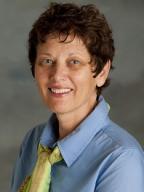


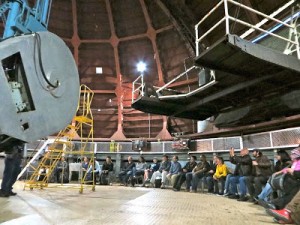
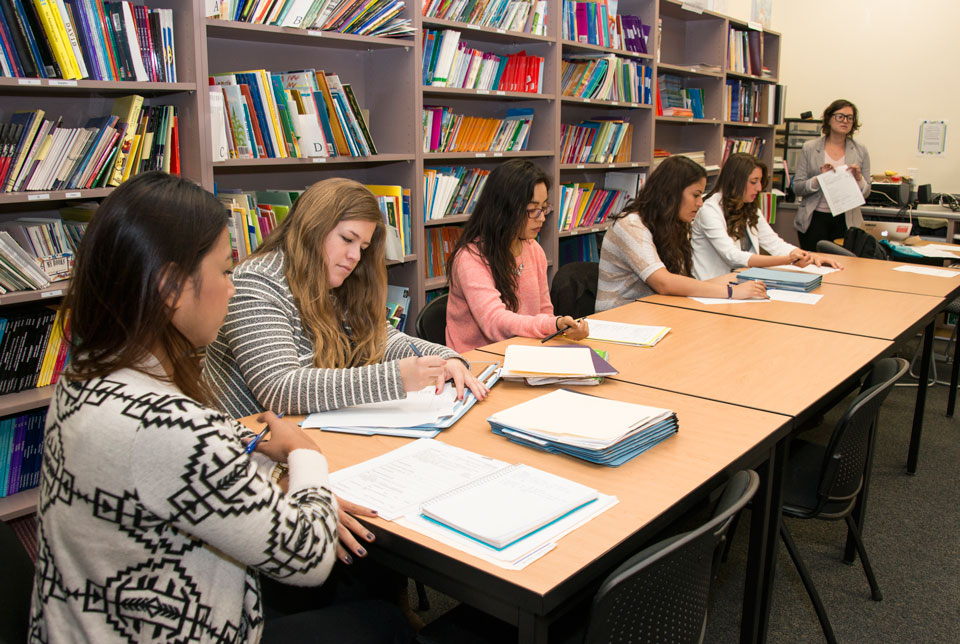
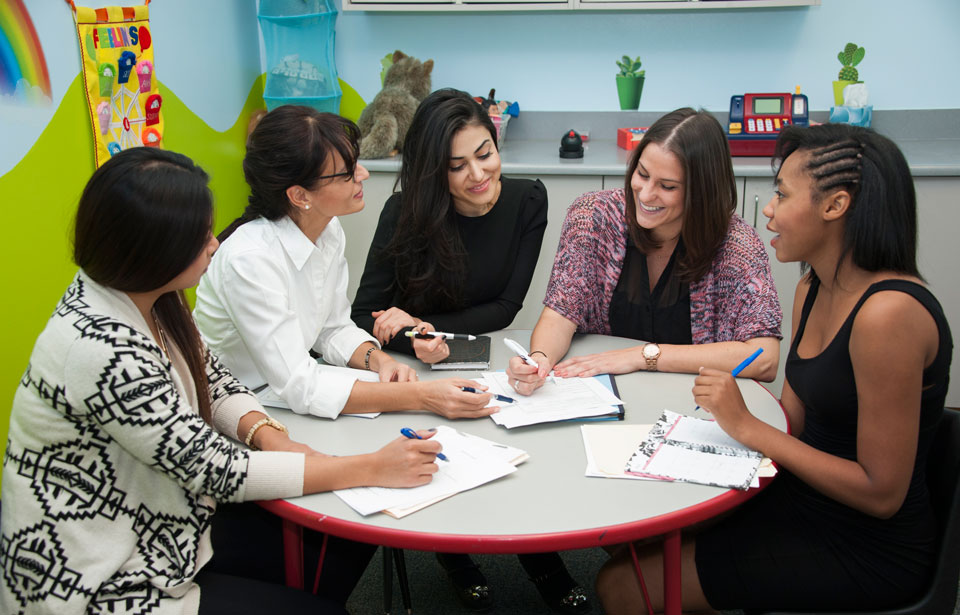
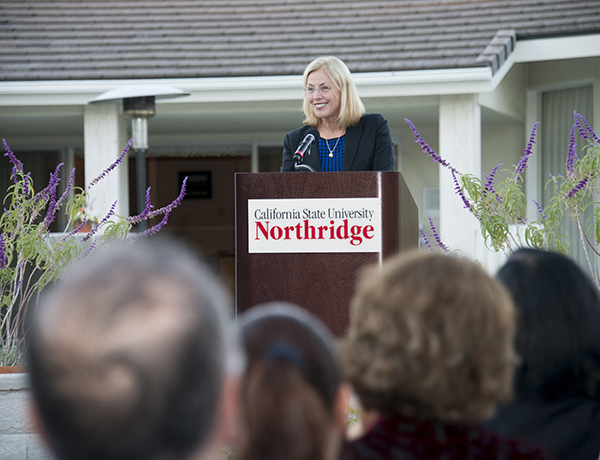




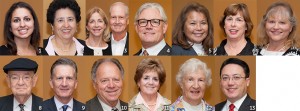


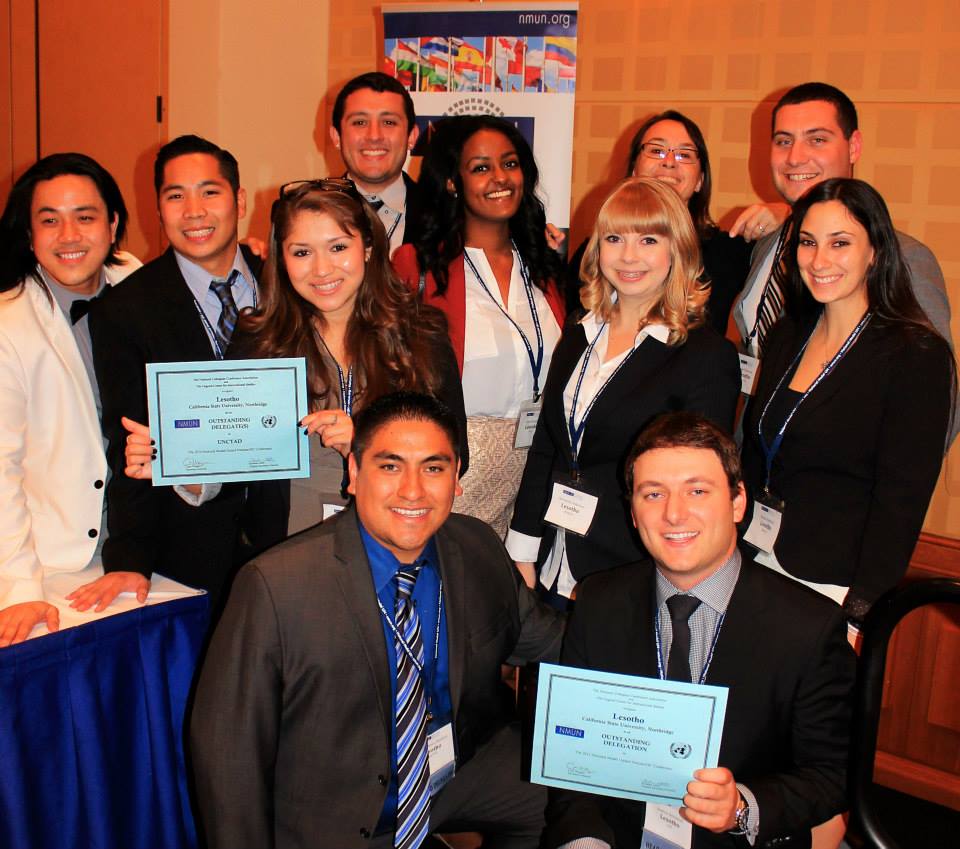

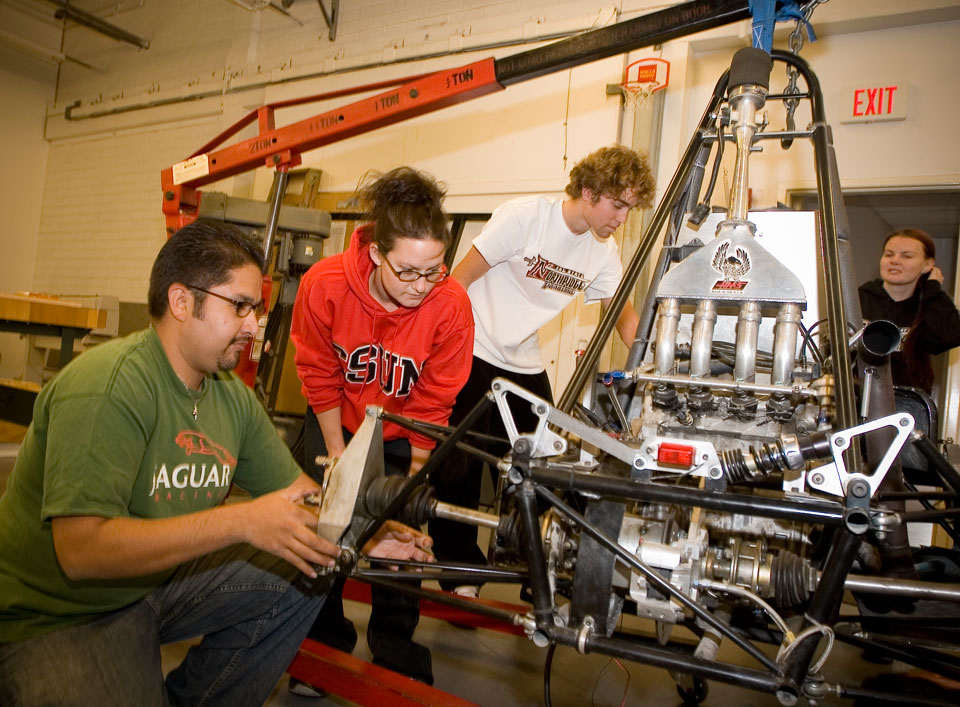

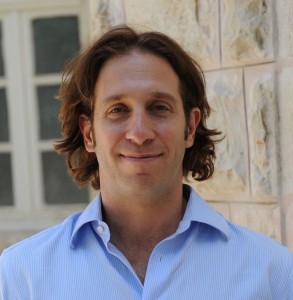


 Finals week is an especially rigorous time for even the most well-organized and driven students. With this in mind, the
Finals week is an especially rigorous time for even the most well-organized and driven students. With this in mind, the 
